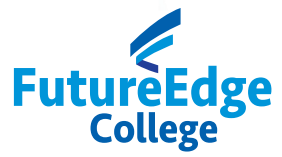TVET adalah proses pendidikan dan latihan yang mempunyai hala tuju pekerjaan dengan penekanan utama terhadap amalan industri. Ia bertujuan untuk menghasilkan tenaga kerja yang kompeten dalam bidang-bidang yang tertentu. Objektif TVET diperkenalkan adalah untuk menyediakan modal insan negara agar mempunyai ilmu serta kemahiran yang diperlukan dalam pasaran tenaga kerjaya untuk memastikan ianya selari dengan misi Malaysia dalam menjadi negara maju. Sehubungan dengan itu, dalam mengejar misi tersebut, tonggak yang menyokong kepada perubahan sektor ekonomi yang berasaskan pengetahuan adalah amat diperlukan dan salah satunya ialah pendidikan vokasional dan teknikal. Skop TVET perlu berdasarkan Standard Pekerjaan atau lazimnya Standard Kemahiran Pekerjaan Kemahiran (NOSS) yang diiktiraf, dengan penekanan kepada komponen praktikal, kemahiran psikomotor dan pendedahan kepada latihan di industri.
TVET merupakan pendekatan pembelajaran yang menyediakan diri seseorang pelajar dengan ilmu dan kemahiran yang sangat berkaitan dengan pekerjaan yang akan diceburi. Di Malaysia, pelaksanaan TVET sangat luas dan boleh dibahagikan kepada tiga kategori. Pertama, TVET Pra Pekerjaan iaitu menyediakan pelajar dengan kelayakan dan kemahiran sebelum memasuki alam pekerjaan. Kedua, TVET dalam Pekerjaan yang bermaksud untuk menyediakan pendidikan dan latihan melalui program latihan semula (re-skilling) dan program peningkatan kemahiran (up-skilling) dan ketiga, Pembelajaran Sepanjang Hayat dengan menyediakan latihan kemahiran untuk kumpulan sasar dengan meningkatkan bakat dan menjana pendapatan.
Datuk Seri Anwar Ibrahim berkata, graduan anak muda tempatan mempunyai kepakaran yang menarik minat pelabur syarikat berteknologi tinggi untuk datang ke Malaysia. “Kerjasama dengan industri juga membolehkan institusi TVET menawarkan program yang lebih berkualiti dan relevan dengan keperluan pasaran kerana mereka adalah pihak yang paling mengetahui permintaan industri.”
Dalam pertemuan dengan beberapa pelabur termasuk rundingan maya bersama jutawan Elon Musk yang juga peneraju kenderaan elektrik Tesla, Anwar berkata antara maklum balas diterima ialah graduan Malaysia mempunyai kepakaran termasuk mahir dalam pelbagai bidang.
Walau bagaimanapun, graduan TVET juga perlu memperhatikan perkembangan teknologi dan trend industri semasa. Mereka perlu memperoleh kemahiran tambahan dan pengalaman yang relevan untuk memastikan mereka kekal relevan dalam industri. Dalam dunia yang semakin berubah dengan pantas ini, penting bagi graduan TVET untuk terus menguasai kemahiran dan pengetahuan mereka. Selain itu, mereka boleh melanjutkan pengajian ke peringkat yang lebih tinggi untuk memperoleh lebih banyak pengetahuan dan kemahiran teknikal yang berkaitan dengan industri. Dengan cara ini, graduan TVET akan dapat meningkatkan peluang mereka untuk memasuki pasaran kerja dan memperoleh gaji progresif.
Kolej Feature Edge menawarkan program TVET dalam bidang perkhidmatan pembaikan dan diagnostik kenderaan. Program ini mendedahkan pelajar dalam bidang automatik dan pembaikan kereta sejajar dengan teknologi terkini.
Kredit Pix: Facebook Careta

